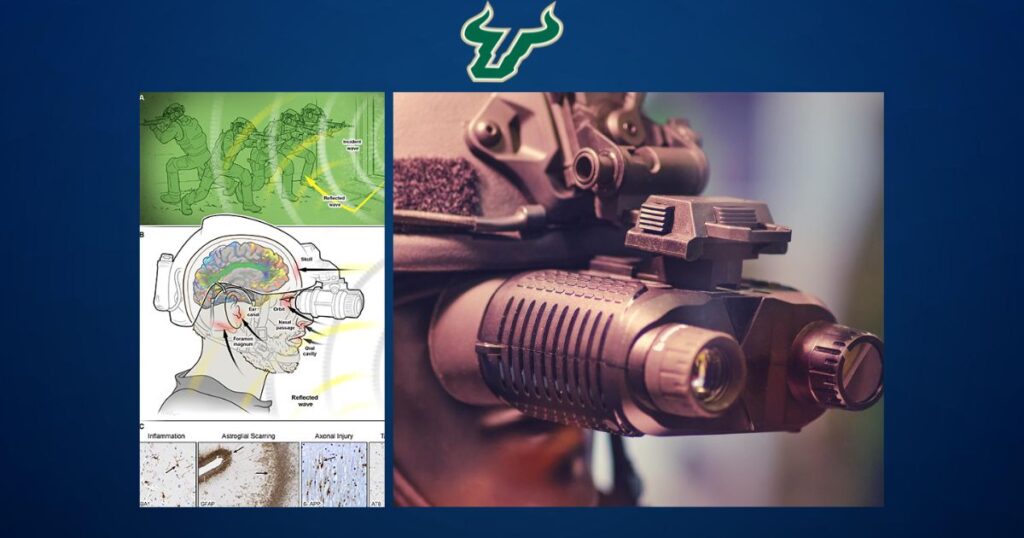Tina Mechacha, Communication and Marketing at the University of South Florida
Key research led by the University of South Florida has driven significant new investments from the US Department of Defense, including potential brain damage to military members.
The USF Institute of Applied Engineering is awarded $2 million each year to expand its research, headquartered in Tampa and headquartered in General Brigham for the next four years. This study explores how repeated low-level blast exposures are associated with signs of potential brain damage in special operations forces who frequently encounter these conditions in training and combat environments.
The first study, published in the Proceedings of the National Academy of Sciences, was coordinated by IAE Program Director Samantha Tromley and an interdisciplinary team who collected data over three years from 30 active duty operators with extensive prior combat experience and reported high levels of cumulative explosion exposure.

Their findings revealed that higher self-reported blast exposure was associated with changes in brain structure, function, and neuroimmuneology and health-related decline in quality of life. In many cases, these changes are not detected by traditional diagnostic methods such as MRI scans, blood tests, and neurocognitive measurements.
This latest wave of funding will allow USF researchers to expand their research to 100 participants over the next four years, and will use advanced brain imaging, blood tests and neurobehavioral analysis to further explore their associations with conditions such as blast exposure, cognitive impairment, memory loss, PTSD, anxiety, and depression.
“With the University of South Florida’s strategic focus on global security and national security, our long-standing partnership with USSOCOM continues to pay off in a very meaningful way,” said Darren Schumacher, president and CEO of Applied Engineering Institute.
The impact of this study is far beyond the laboratory. By identifying shared biomarkers for active special operations forces with repeated explosive exposure, USF paves the way for rapid field detection and the development of portable diagnostic tools for new therapies to protect and treat military personnel. These advances strengthen the military’s ability to mitigate repeated blast exposures, and better protect and preserve the military’s health.


